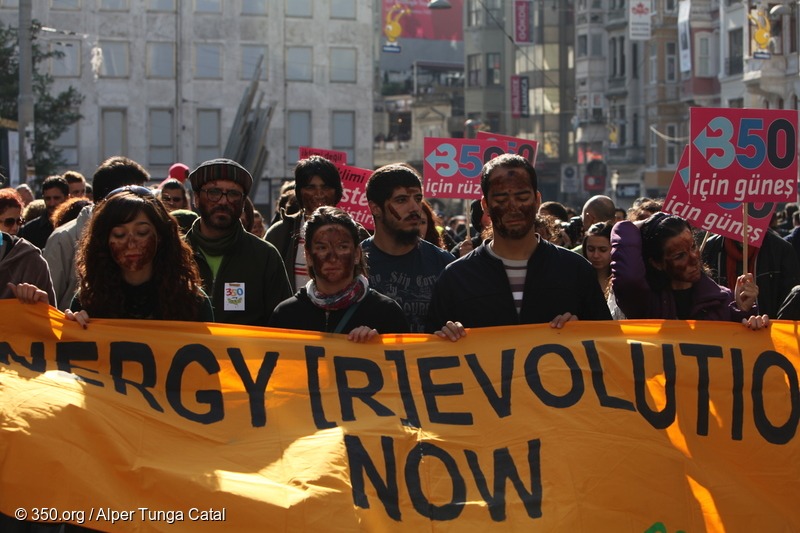There is no better start to a day than waking up to good news. Especially, at a time when your hope is weakened by a near war in your neighbouring country, and by your government trying to allow your forests, national parks and protected areas to be opened up for infrastructure projects.
You wake up to the news that a proposed 1,200 MW coal-fired power plant on a lovely coast of the Black Sea is dead, and hope grows. This is a historic victory for local communities struggling against a project that would have destroyed ecologically significant forest areas and polluted the air. The Gerze community has been actively resisting this project for the last five years. The key element in this resistance is that people from seven to 70 have fearlessly resisted together to protect their environment and their health.

© Alper Tunga Catal
How did we reach this point? The Ministry of Environment and Urbanisation has confirmed that the Environment Impact Assessment of the proposed Gerze coal-fired power plant has been rejected, remarkably for the fourth time. With this development, it can also be concluded that the project is dead in the water.
Normally, environmental impact assessment reports are easily approved in Turkey but due to the nationally recognised mobilisation in Gerze, this did not happen. Starting from Gerze, this movement against coal is getting stronger and standing strong against the investments threating natural habitat. The movement is, therefore, considered the biggest risk confronting investors.
Today’s victory demonstrates that people are and will continue to challenge and stop killer coal plants. All the lawsuits brought against them didn’t demoralise them or reduce their courage. Sierra Club chose the Gerze resistance as one of the five most successful resistance efforts in the world. People of Gerze, together with Greenpeace and a huge community supporting them, have won the right to clean air, and a healthy environment.
We at Greenpeace have been campaigning, protesting and mobilizing against this destructive coal-power project for the last two and a half years. In 2010, Greenpeace brought the Rainbow Warrior to Gerze, and held a rally against the proposed coal plant. The campaign included two major actions against the project, one in the Anadolu Company’s building and one in an iconic, historic area in ?stanbul. We ran a petition that got 150,000 sign-ups.
Still, there are more than 80 coal-power plant projects in Turkey – one of the largest number of dirty coal projects anywhere in the world. The largest of these projects, the massive Afsin-Elbistan lignite project, also suffered a major setback a few days ago: the main investor in the $12 billion US project is believed to have pulled out completely. The Afsin-Elbistan expansion, the largest and dirtiest coal-fired power plant project anywhere in the world, would have emitted more CO2 than all of Norway.
With the Gerze project cancelled and the likely cancellation of the largest coal power project in the world, the future of the more than 80 proposed coal-fired projects is suspect. So, there is hope that Turkey’s energy future will turn a significant corner with renewable solutions moving forward.
This news is encouraging for all countries and communities facing the threat of destructive fossil fuel projects. No matter who you are up against, unyielding resistance works. Examples like Gerze show how together we can end the age of coal.
Pinar Aksogan is a Climate and Energy Campaigner at Greenpeace Mediterranean.


